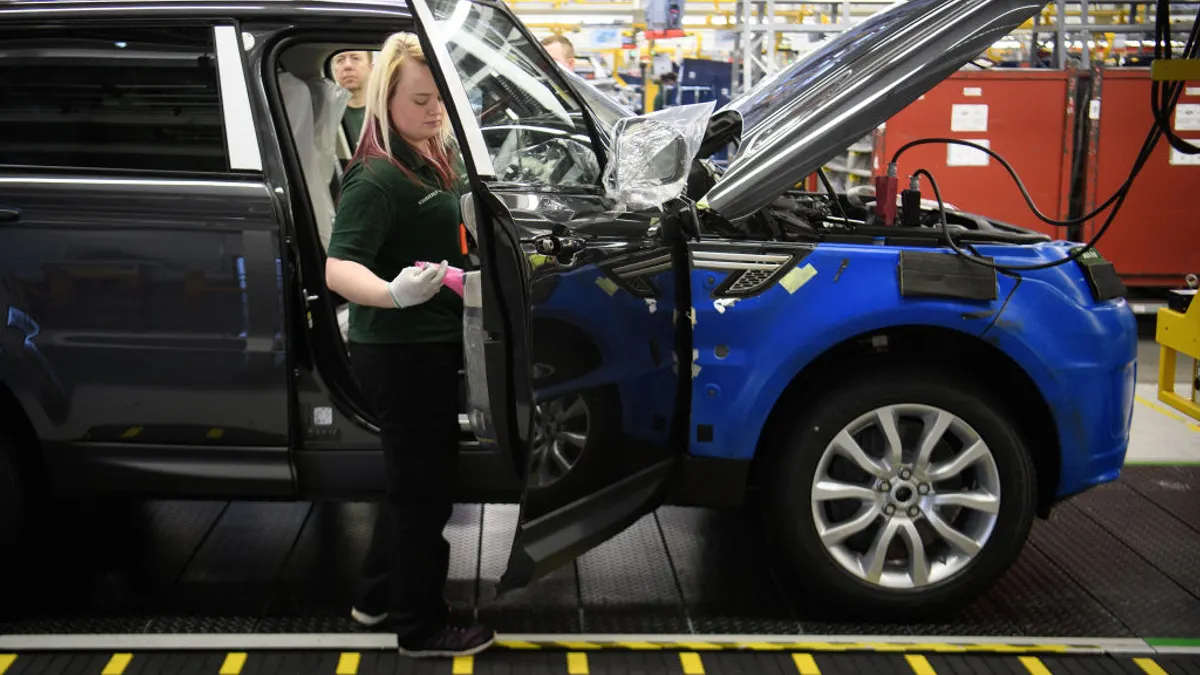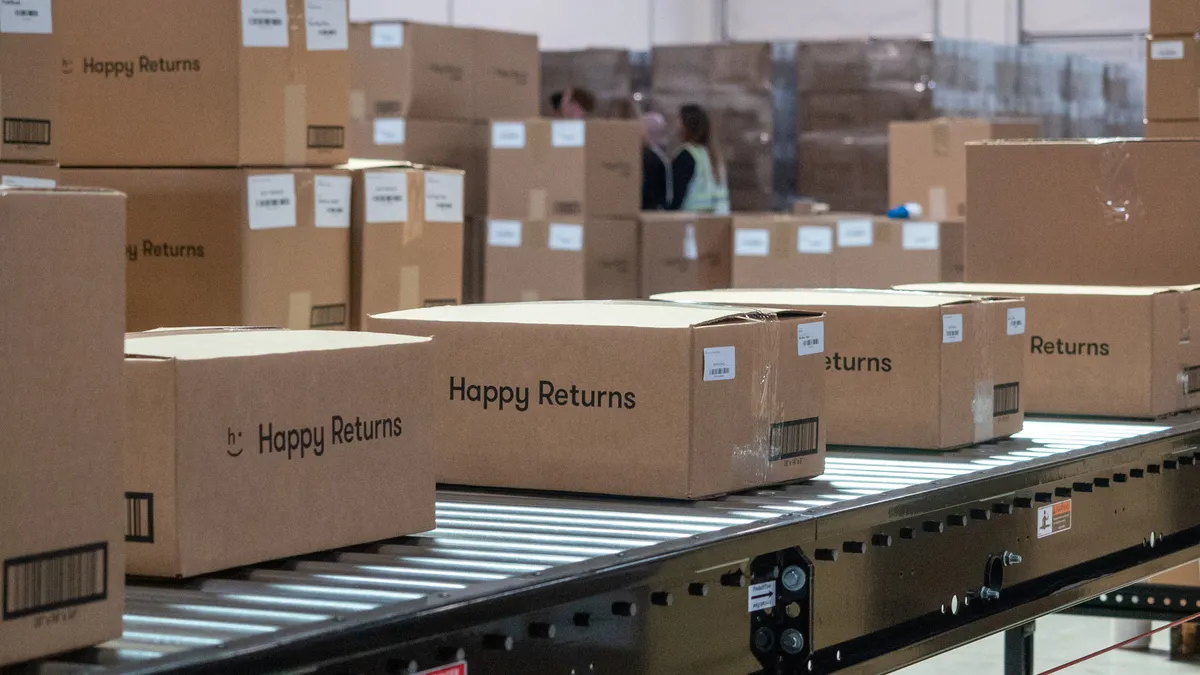Supply chains are constantly changing as new rules, technologies,
In Case You Missed It:
- Amid a wave of disruption, supply chain managers cannot forget the fundamentals.
- IBM led a coalition of grocers and suppliers on a blockchain initiative.
- Cybersecurity is in the spotlight as supply chains realize the high risk of cyberattacks.
Market Snapshot
Every new administration brings in a wave of fresh nominees to positions pivotal to supply chains. The Secretary of Transportation, U.S. Trade Representative, head of the Export-Import Bank and Secretary of Commerce are but a few examples.
But perhaps the most important of all appointees must soon be named more than six months after the start of the new presidency. The White House is reportedly debating nominees to succeed Janet Yellen as the chair of the Federal Reserve, the central bank responsible for monetary policy and target inflation rates.
In other words, President Trump will soon have to pick a person to lead the undercurrents of the economy he seeks to govern for the next four years. The Federal Reserve is an independent body whose policies can support or undermine major political victories, like spending packages targeting infrastructure, with progressive shifts in interest rates.
Most importantly, however, macroeconomic shifts in interest rates have the potential of affecting daily operations, supplier cash flows and decisions on making capital investments. Higher interest rates inevitably affect the price of loans, which are leveraged to finance new warehouses, automated equipment, and even transportation during times of crisis. If rates are not set, well-meaning suppliers or ambitious companies seeking to keep up with technology through capital infusions may get caught in a debt spiral, which could eventually ripple throughout the economy.
The bank’s decisions, which will be led by the President’s appointee, come at a pivotal time for the U.S. economy: The Great Recession and years of tepid growth caused the central bank to keep interests rates at 0%, but recent positive indicators have led the bank to raise rates three times in the past year. Economists must now debate how quickly rates can rise without crippling lending or spending.
Today, the Kansas City Federal Reserve is hosting its annual conference in Jackson Hole, WY, where major economists — including European Central Bank President Mario Draghi — will discuss the state of the economy as well as next steps.
Executives should pay close attention to the outcome, and Trump's eventual pick for chair of the Federal Reserve, to gauge how economic policy may proceed throughout this administration.
Technically Speaking
Flytrex, a Tel-Aviv based drone delivery company, will soon make deliveries in Iceland, Bloomberg reported Wednesday. While U.S.-based drone companies continue to clamber through and over regulatory hoops and hurdles, Flytrex expects to receive regulatory approval in Iceland by the end of the year and begin delivering packages straight to consumers’ front doors.
While China and the U.S. are home to the top drone companies in terms of funding, according to CB Insights, it’s another matter entirely if they can’t get regulatory approval to operate commercially.
In other news, Barclays customers are now able to make payments via the Barclays iOS app by using Siri, 9to5Mac reported earlier this week, while CB Insights reported that investors endowed artificial intelligence (AI) startups with a “record high” of $4.9 billion in investments in 2016, which suggests that the market is fairly confident that AI is becoming and will become a very important, even integral, part of business operations.
Breaking Ground
LG Electronics will build a $25 million electric car parts factory near Detroit, MI, which will employ around 300 people, The Wall Street Journal reported Wednesday. Even though some big auto suppliers believe that electric cars won’t dominate the market anytime soon, it seems as though not all suppliers agree — and some, like LG, may be trying to get ahead of the curve to make a profit before the boom.
As the air cargo industry's growthcontinues to skyrocket, the Chicago O’Hare International Airport opened its $220 million second phase of expansion — Northeast Cargo — to allow for more air freight to pass through the airport, according to Air Cargo News. Air cargo volume at O’Hare is up 15% for the first half of 2017 compared to the same period in 2016, and the airport expects volume to continue to increase.
In other news, the ports of Los Angeles and Long Beach plan to utilize vacant port property for container dray-offs at the request of truckers, pending approval from the harbor commission, JOC.com reported Monday. Meanwhile, FedEx will open a $30 million, 237,000 square foot distribution center in Chattanooga, TN, in September that will employ 300 people, according to the Times Free Press, and opened a 305,000 square foot distribution center in Olathe, KS, last week that will employ 290, according to KMBZ.
Mergers & Analysis
Amazon does not shy away from revealing its ambitions, as a relentless stream of new patents and distribution centers show, but a series of announcements this week reinforced the grocery industry's fears that disruption may be at their doorstep.
The Federal Trade Commission on Wednesday cleared the e-commerce giant's acquisition of Whole Foods Market, to the dismay of many holdouts. Congress even sought to review the deal, arguing Amazon's grip on online retail was becoming too strong. However, the FTC is in the business of encouraging competition, not shielding industries from disruption.
A day later, Amazon announced it would close its purchase on Monday and plans to immediately drive down the grocer's prices — beginning with common staples like organic bananas, farm-raised salmon, organic brown eggs and lean ground beef. In addition, the e-commerce giant would tie a Whole Foods loyalty program to its own Prime options and place Amazon lockers within the stores.
The two moves confirm speculation that the purchase of Whole Foods was related as much to Amazon's grocery ambitions — which have spanned over a decade — as they are to a push for brick-and-mortar retail and increased access to customer data.
However, Amazon's success in the grocery industry should not be taken for granted. Grocery retail's reliance on perishables heightens operational costs and therefore product prices. Whole Foods benefits from customers' willingness to pay extra for organic products, which subsidize these costs. How Amazon will decrease consumer prices while retaining a higher cost of goods sold than its grocery competitors remains a question. Will a paid loyalty program be enough?
Regardless of whether Amazon's grocery strategy pays off, the purchase notably provides a vast network of brick-and-mortar locations to serve as e-commerce pickup and drop-off locations at a time when competitors like Walmart are racing to gain market share.
In other major news this week, Walmart and Google teamed up to compete with Amazon. For the first time, Walmart will place its products on an online marketplace, powered by Google, providing features such as voice-activated shopping through Google Voice. It's great news for Google, Walmart and the various supplier brands that can now sell through another online marketplace without threatening existing relationships.




















